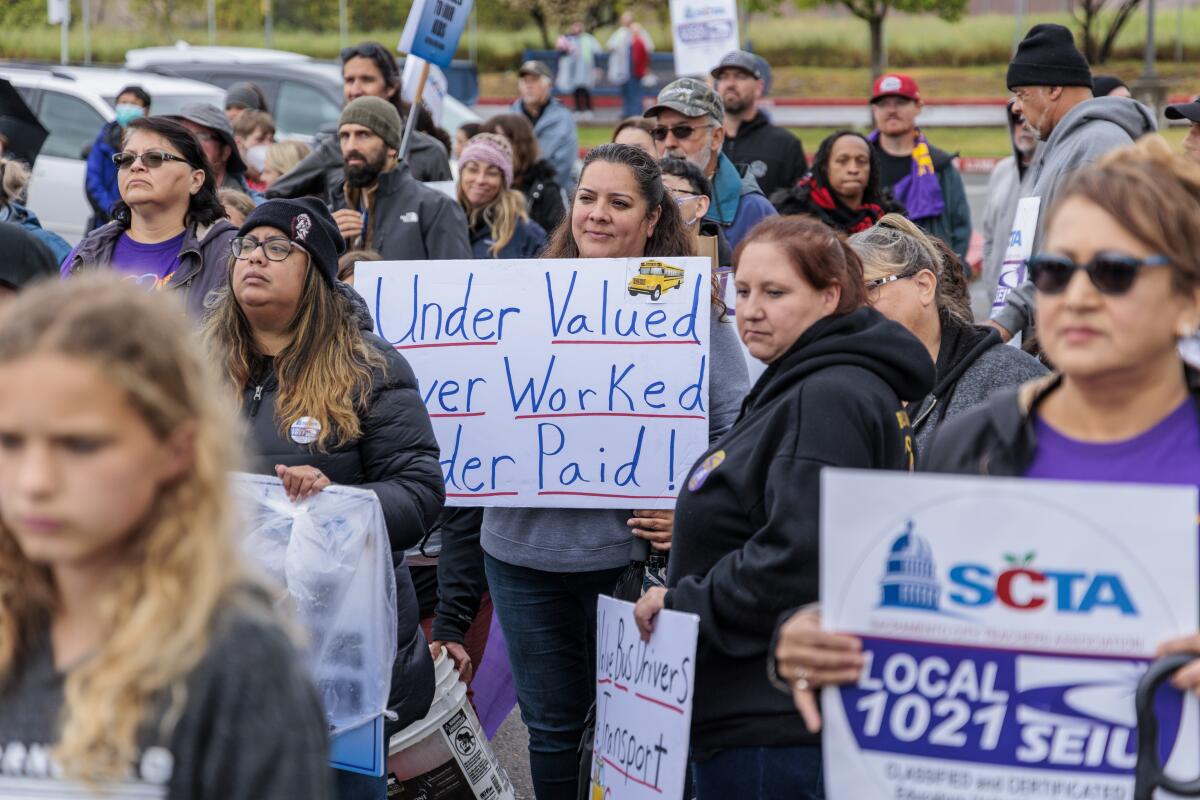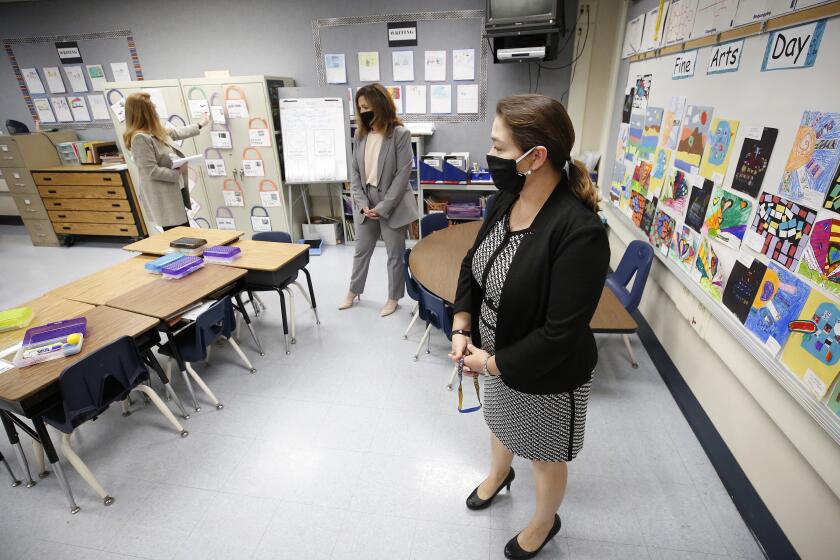Editorial: California school salaries should be easier for the public to see

- Share via
For the last several years, the vast majority of California school districts have ignored a seemingly simple request from the state controller: to send in their payroll information, so the controller can include education salaries in a large public database that shows how much employees are paid in state and local governments.
Other local agencies — including cities, counties and special districts — have been required to send their payroll information to the state controller’s office annually for more than a decade. The requirement grew out of the 2010 Bell scandal, in which seven public officials were convicted of corruption after The Times reported the town was paying its city manager nearly $800,000 a year.
But this basic act of transparency has been optional for K-12 school districts, and about three-quarters of them just don’t do it.
California spends a huge chunk of its budget on public education — some $67 billion this year — and school districts put most of it into salaries and benefits for their employees. These are critical expenses meant to ensure that 6 million students are properly cared for and educated by adults who are fairly compensated for their important work. They must be easily available for the public to see.
Just 23% percent of public school employers submitted pay information for 2020. School districts have an obligation to be transparent with their spending.
The good news is that a bill moving through the state Legislature would require school districts to submit their payroll information annually to the controller. We were glad to see Democrats and Republicans on the Senate Education Committee unanimously pass the Senate Bill 924 last month.
But it was disappointing that representatives for Controller Betty Yee showed up to oppose the bill, saying school districts argue it’s too onerous to submit the data in the format the controller’s office requests, which includes spending on salary and benefits for every employee. School systems are accustomed to submitting information to the state Department of Education, which publishes a much more limited data set. It shows minimum, average and highest salaries for teachers but omits spending on benefits and leaves out administrators altogether.
Sen. Steve Glazer (D-Orinda), who wrote SB 924 and is running for state controller this year, said he would negotiate details of the bill with Yee’s office to ensure the requirement can be implemented smoothly.
“It’s frustrating when the bureaucracy gets in the way of our good lawmaking,” Glazer told the committee.
We agree. But it’s incumbent on lawmakers to fix the bureaucracy, not let it stop them from doing what is right. About one-quarter of school districts are already submitting complete information to the controller, so it’s reasonable to expect that others can do it too.
The district says it has reached tentative agreements with the Sacramento City Teachers Assn. and a union representing bus drivers, aides and others.
Recent teacher strikes in Northern California demonstrate the vital public interest in publishing complete information on school salaries and benefits. Teachers in a Sonoma County district recently wrapped up a six-day strike seeking increased pay. Students in the Sacramento City Unified School district were locked out of school for eight days in March while unions and district leaders feuded over pay and healthcare benefits. Parties at the bargaining table presumably had reams of budget data to work with, but parents and voters? Not so much.
Meanwhile, the Orange County board of education recently cut its superintendent’s pay by 14%, and the San Diego Unified school board awarded its new superintendent a salary 29% higher than his predecessor. Are these decisions fair? Random? A stronger public data set would make it easier to figure out.
We urge state lawmakers to continue advancing SB 924 when it comes up for its next vote on April 18. And we hope they will resist the pressure from the controller to diminish the amount of data the bill will make available to the public.
More to Read
A cure for the common opinion
Get thought-provoking perspectives with our weekly newsletter.
You may occasionally receive promotional content from the Los Angeles Times.












